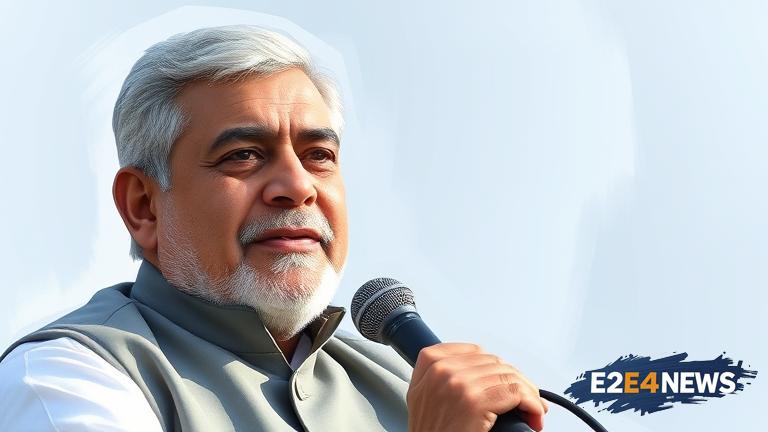The issue of statehood for Jammu and Kashmir has been a contentious one since the abrogation of Article 370 in 2019. Lieutenant Governor Manoj Sinha has weighed in on the matter, stating that the union territory will have to wait for the right time to be granted statehood again. Sinha’s comments come amidst growing demands from various political parties and stakeholders in the region for the restoration of statehood. The LG’s statement has been met with a mix of reactions, with some welcoming his pragmatic approach and others criticizing him for not providing a clear timeline. The Jammu and Kashmir Reorganisation Act, which came into effect in 2019, bifurcated the state into two union territories: Jammu and Kashmir, and Ladakh. Since then, there have been persistent demands for the restoration of statehood, with many arguing that the move has led to a loss of autonomy and representation for the people of the region. The issue has been further complicated by the ongoing security situation in the region, with militant attacks and counter-insurgency operations continuing to affect the lives of civilians. Despite these challenges, the LG has emphasized the need for patience and stability, stating that the government is working towards creating an environment conducive to development and growth. Sinha has also highlighted the various initiatives being undertaken by the administration to promote economic development, infrastructure growth, and social welfare in the region. These include investments in key sectors such as tourism, agriculture, and industry, as well as efforts to improve connectivity and accessibility. However, many in the region remain skeptical about the government’s intentions, citing the lack of representation and the perceived erosion of their rights and freedoms. The issue of statehood has also become a major political plank, with various parties and leaders using it to mobilize support and garner votes. The National Conference, the Peoples Democratic Party, and the Congress are among the parties that have been vocal in their demands for the restoration of statehood. On the other hand, the Bharatiya Janata Party has maintained that the decision to abrogate Article 370 was necessary for the integration of Jammu and Kashmir with the rest of the country. As the debate continues, the people of Jammu and Kashmir remain caught in the middle, unsure of what the future holds for their region. The LG’s statement has added to the uncertainty, with many wondering what constitutes the ‘right time’ for statehood. Will it be when the security situation improves, or when the economy shows signs of growth? Or will it be when the political climate in the region becomes more conducive to such a move? Only time will tell, but for now, the people of Jammu and Kashmir will have to wait and watch. The issue of statehood is not just a political or economic one, but also an emotional and psychological one, with many in the region deeply invested in the idea of self-governance and autonomy. As the region navigates this complex and sensitive issue, it is essential to prioritize the needs and aspirations of the people, rather than just the interests of politicians and policymakers. The road ahead will be long and challenging, but with patience, perseverance, and a commitment to dialogue and understanding, it is possible to find a solution that works for all stakeholders. In the meantime, the people of Jammu and Kashmir will have to continue to wait and hope for a better future, one that is marked by peace, prosperity, and self-determination. The LG’s statement has sparked a renewed debate on the issue, with many calling for a more nuanced and inclusive approach to addressing the region’s complex challenges. As the discussion continues, it is essential to listen to the voices and concerns of all stakeholders, including politicians, civil society leaders, and ordinary citizens. By doing so, it may be possible to find a way forward that balances the competing demands and interests, and paves the way for a more stable and prosperous future for Jammu and Kashmir. The region’s history and cultural heritage are rich and diverse, and its people have always been known for their resilience and adaptability. As they navigate the challenges of the present, they will have to draw on these strengths, as well as their capacity for dialogue and compromise, to build a better future for themselves and their children. The issue of statehood is just one part of a larger narrative, one that is marked by complexity, nuance, and uncertainty. But with courage, conviction, and a commitment to the well-being of all stakeholders, it is possible to create a brighter future for Jammu and Kashmir, one that is marked by peace, prosperity, and self-determination.
